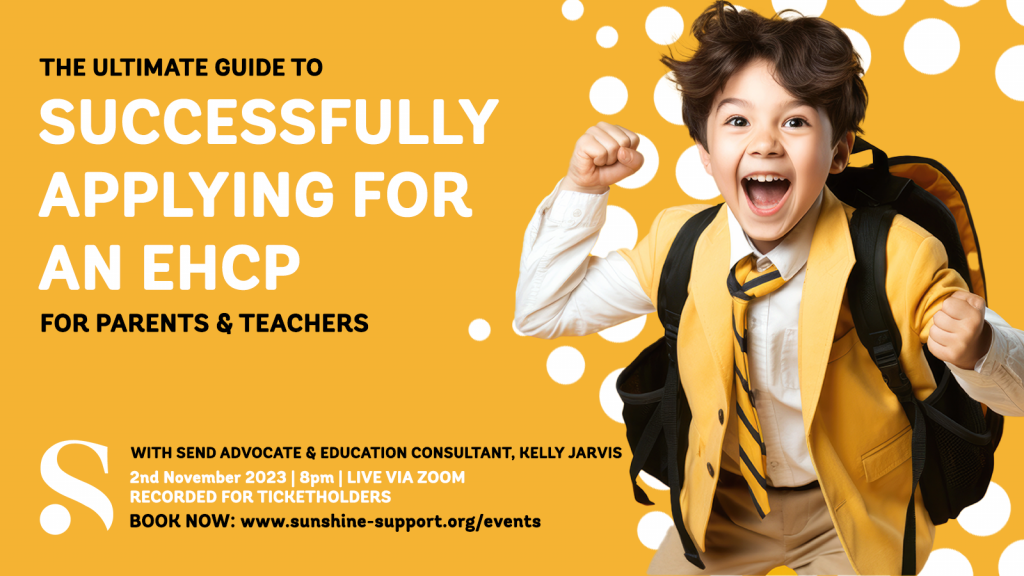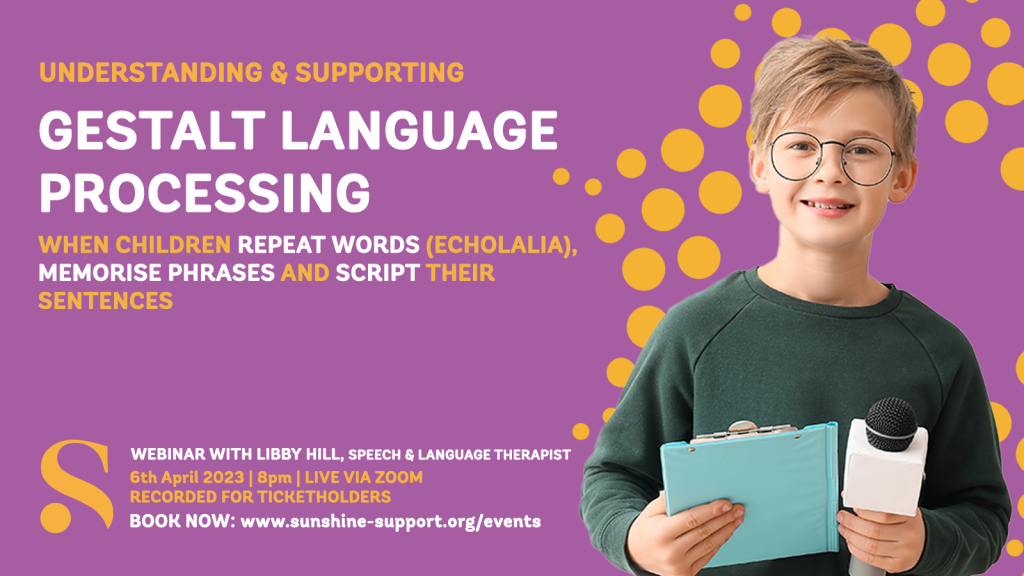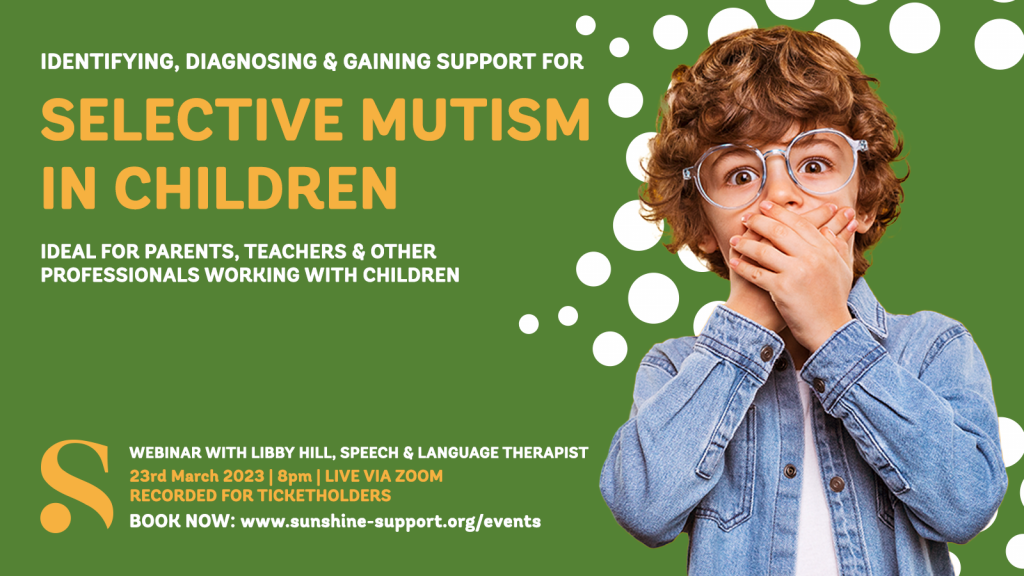We are told so many reasons why our children can’t have an EHCP, but how much of it is truthful?
This blog post was written by Chrissa Wadlow, founder of Sunshine Support…

I met a lot of parents at our recent EHCP workshop. We played a ‘Myth or Truth’ game about what we are told by local authorities and schools, as parents, about EHCPs.
I was delighted that they got every single statement correctly filed into ‘Myth’ or ‘Truth’ but alarmingly everyone agreed that they had been told an awful lot of myths by professionals in order to put them off applying for an EHC Needs Assessment.
“A child needs to be academically ‘behind’ in order to have an EHCP” was a common myth told to families by professionals. The beauty of an EHCP is that it looks at a child/young person’s needs holistically, covering Education, Health and Care. It is not specifically targeting a child’s intellectual ability. For instance, if a child with straight A grades can not access a certain school environment due to sensory processing difficulties or anxiety, does that mean the child shouldn’t have meaningful adjustments made for them? A child needs to be able to access learning, and an EHCP helps with removing those barriers no matter the intellectual ability.
“EHC needs assessments are funded by schools.” Another myth. They’re funded by the Local Authority.
An interesting talking point for us at our recent EHCP workshop was “You need a diagnosis to get an EHCP.” This is, in fact, a myth BUT it does help if your child has a specific diagnosis that helps the person making a decision about the EHCP to understand how your child can be helped.
Issues with Diagnoses
We are seeing a lot of parents at the moment, who are delighted that an NHS doctor has observed their child for 15/20 minutes and decided he/she is Autistic. They’re relieved they finally have an answer which will help them support their child better. However, with this method of diagnosing Autism we don’t have a report detailing how the diagnosis was made, how and why the child presented as being on the Autism Spectrum and what recommendations the doctor has for supporting and developing the child. We simply have a letter with the word ‘Autism’ on it.
Parents are left unsure of what to do next. Some apply for an EHCP with this doctor’s letter as evidence, but it really is no surprise the EHC Needs Assessment is turned down given the lack of detail in the letter.
It’s imperative when getting a diagnosis of any kind that we ask for detail. Without the detail how can we support and develop our child?
The lack of funding in assessment services is having a hugely detrimental impact on our children’s lives, and so parents are turning to private diagnosticians to help. Which leads to another myth “private reports will not be accepted and not added to the EHCP” – this is absolute nonsense. At tribunal each piece of professional, expert evidence is considered equally. The judge does NOT favour the LA professional reports, in fact in my personal experience the judge can often be more harsh on the LA/NHS as their reports are often vague and lacking in necessary detail.
We covered about 15 myths at our workshop, but we know there are hundreds more untruths told to us as parents by professionals to put us off applying for an EHC Needs Assessment.
So, why are we told these things?
I firmly believe that a lot of schools that tell parents these ‘myths’ are of the understanding that they’re telling the truth. I don’t want to think that any education professional would want to stand in the way of a child having their needs met.
But, also, due to the way schools receive their High Needs Funding, it can be off-putting to have an EHCP with no funding attached. If the EHCP is not properly written sometimes it serves no benefit to a mainstream school in terms of funding.
Which brings me to the ultimate reason we get told these inaccuracies; FUNDING. Everything boils down to money. The more of us that are ‘put off’ by the first rejection the better for Local Authorities, they rely on people believing these myths so that they go away. However, it’s a very short-sighted way of looking at things. If children don’t get the intervention when it’s needed, it can end up costing the Local Authority and the NHS a fortune in the long run.
Support for your EHC Needs Assessment application…
Do you feel daunted by the thought of applying for an EHCP?
There are so many laws and bits of legislation to wade through it can baffle and overwhelm any one of us!
The process is designed to be Parent and SENCo friendly – but the reality is different, we get it. We’re seasoned SEND parents and professionals ourselves, and we know all to well how overwhelming it can be.
That’s where our EHCP Day comes in…
Our highly regarded team of advocates will be at your disposal for a whole day to teach you all you need to know about:
- Education Law – the different pieces of legislation you need to know and where to find them
- Evidence – what constitutes evidence and why
- Assessments, diagnoses and reports – the relevance and importance of each
- The assessment process and your rights throughout
- How to hold the council accountable
- Appeals
- The Judicial Review process – when and why we may need to explore this
- Your mental health and wellbeing
Once we have explored all of this we will break for lunch and then we will get cracking on writing the application letter together! Our advocates will be on hand to assist you, answer your questions and provide all you need during this brilliant day of learning and support.
There will be activities to help keep you engaged and help you check your understanding throughout… Our sessions are always neurodivergent friendly and accessible.
Our next EHCP Day takes place on Tuesday 7 October 2025, grab your tickets here: https://www.eventbrite.co.uk/e/how-to-effectively-write-your-ehcp-application-workshop-tickets-1345139842479





